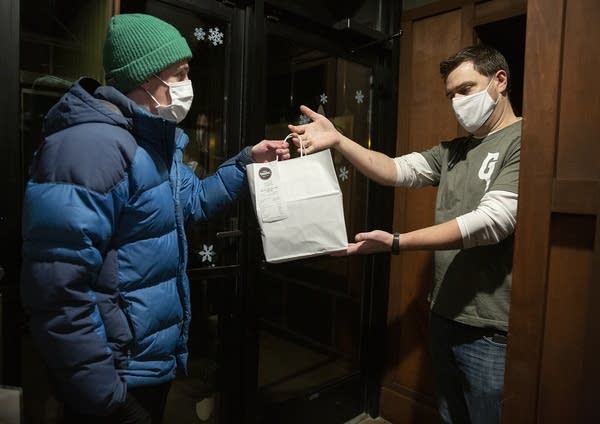Restaurants, gyms on the verge of COVID-19 closure worry about employees

Go Deeper.
Create an account or log in to save stories.
Like this?
Thanks for liking this story! We have added it to a list of your favorite stories.
Updated: Nov. 20, 2:10 p.m. | Posted: Nov. 19, 5:44 a.m.
With the spread of COVID-19 continuing unabated, Gov. Tim Walz is reimposing restrictions on many aspects of daily life. The latest measures are aimed at halting socializing outside of Minnesotans’ households.
On a day that the state reported another 5,100 COVID-19 cases and a record 67 fatalities, Walz took to prime-time TV and said the pandemic has reached a point where people must again make sacrifices. This time, bars and restaurants must stop in-person services, but delivery and takeout are allowed for four weeks starting Friday at midnight. Theaters and fitness centers will shut down for the same period.
“We know this has been difficult, and it’s been challenging, and much has been asked of you. And I need to ask a little more,” Walz said.
The restrictions are more targeted than those last spring. Barbershops and retailers are staying open. But the kinds of businesses that epidemiologists say are conducive to COVID-19 spread will shut down.
Turn Up Your Support
MPR News helps you turn down the noise and build shared understanding. Turn up your support for this public resource and keep trusted journalism accessible to all.
Alex Mortensen oversees 22 Planet Fitness locations in Minnesota as chief operating officer of a franchisee. Mortensen says he supports the governor’s overall effort, but notes that the chain has operated safely throughout the pandemic, with plenty of distance between workout machines and no outbreaks.
“Our facilities are large, so there’s plenty of space, and our members feel safe,” Mortensen said. “We definitely should be deemed essential.”
Mortensen said while it pauses, and the company will try to keep as many of its 400 Minnesota employees as possible.
With restaurant dining rooms shutting down after Friday night, many owners will lean on takeout. At Union Hmong Kitchen in Minneapolis, Chef Yia Vang says customers stepped up to support his business last spring, and he expects they will again. Vang said he wanted to be included in conversations with the state leadership, echoing what some of his colleagues have said.

“It sounds really bad, but it’s like mom and dad getting divorced and you’re that kid just sitting there saying what’s going to happen to us. That’s what we feel like. We need clarity.”
Mike Jennings owns several restaurants including JJ’s Clubhouse in Golden Valley. He says he didn’t anticipate this second mandatory closure, and it’ll hit his employees much harder because unlike last time, they won’t have the $600 week in supplemental unemployment insurance.
“I’m not certain how we’re going to be able to get through this one because not only is it devastating and heartbreaking, but my staff is absolutely concerned whether or not they’re going to be able to survive financially,” Jennings said.
St. Paul restaurateur Brian Ingram shares that same concern for his 140 employees. Ingram, who owns three eateries including Hope Breakfast Bar, said 90 percent of his staff will likely be furloughed.

In addition to serving takeout to his regulars, Ingram said he’s also providing meals to families — including thousands of restaurant employees — through his charity Give Hope MN. “We’re going to be pivoting to figure out how we can feed this community of workers that are now unemployed and frankly don’t have benefits that will even meet their very basic needs.”
Ingram said he and many others in the restaurant world are expecting the shutdown to last well beyond the four weeks in the governor’s executive order.
Many Republicans pushed back on Walz’ move. But Republican state Rep. Dave Baker of Willmar said he supports the DFL governor this time, because the restrictions are based on actual COVID-19 cases, not predictive modeling. Baker said state leaders must again step in to help shuttered businesses.
“We’re putting together ideas right now. Whether it’s more sales tax delays, to payments for restaurants that are closed up. Whether there’s more CARES act money,” he said, adding that lawmakers hope to have the legislation ready by the next special session in December.
Editor's note (Nov. 20, 2020): This story has been updated to clarify Yia Vang's views about the communication process between state leaders and business owners like himself around the new regulations.


